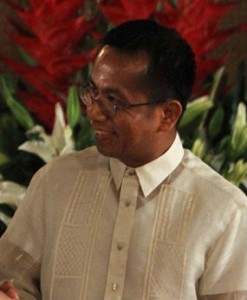Japan investors urged to fill gap in PH infra funding
Philippine economic managers have urged Japanese investors to pour money into the country’s infrastructure in order to sustain the growing economy.
“The [Philippine] government is working to step up investments in infrastructure to be at par with other competing economies and to meet the country’s future growth requirements,” Socioeconomic Planning Secretary Arsenio M. Balisacan said during the Philippine Economic Briefing in Tokyo on Wednesday.
The Aquino administration aims to jack up infrastructure spending to at least 5 percent of the gross domestic product (GDP) by 2016, from a mere 2.2-percent share in 2012.
In a statement Friday, the Investor Relations Office reported that Philippine officials encouraged the more than 400 Japanese businessmen and government representatives at the Tokyo road show to look into the opportunities being presented by the public-private partnership (PPP) infrastructure projects to be rolled out within a year’s time, on top of prospects in the capital markets, tourism and power sectors.
The PPP projects are worth $12.28 billion.
To improve the country’s infrastructure, 16 PPP projects will be rolled out in the next 12 months. The projects include the operation and maintenance of the airports in Bacolod (worth $450.2 million), Davao ($901.6 million), Iloilo ($675.6 million), Panglao in Bohol ($52 million), Puerto Princesa City ($116.2 million), and Laguindingan ($353.8 million), according to PPP Center Executive Director Cosette V. Canilao.
Article continues after this advertisementThe Japanese investors were also urged to study the $3.927-billion south line of the North-South Commuter Railway, the $3-billion Mass Transit System Loop, the $1.115-billion Regional Prison Facilities, the $464-million San Fernando Airport, the $428.9-million Motor Vehicle Inspection System, the $416-million New Centennial Water Supply Source project, the $377.8-million Davao Sasa Port, as well as the Batangas-Manila Natural Gas Pipeline, the Light Rail Transit Line 1 Dasmariñas Extension and the Manila Bay-Pasig River-Laguna Lake Ferry System projects.
About 17 percent of the country’s 32,000-kilometer national road network also remains unpaved. This is where Japanese firms may partner with the Philippine government in the areas of construction, consultancy as well as technical support services, Public Works and Highways Secretary Rogelio L. Singson noted.
